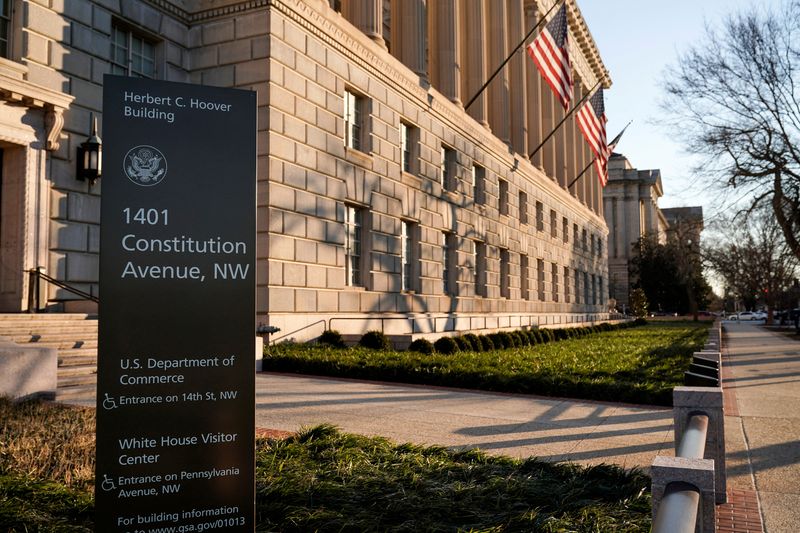WASHINGTON (Reuters) -The Biden administration added more than a dozen Chinese entities to its restricted trade list on Wednesday, including a company whose TSMC-made chip was illegally incorporated into a Huawei artificial intelligence processor.
Sophgo and other entities linked to it were among 14 China-based companies and two Singapore-based companies added to the U.S. Commerce Department’s Entity List, according to a federal government notice. Companies on the list cannot receive goods or technology exports without a license, which is generally denied.
Sophgo drew attention after a chip found on Huawei’s Ascend 910B multi-chip AI system matched one it ordered from Taiwan Semiconductor Manufacturing Co.
Sophgo is among numerous companies that have been punished by the U.S. for helping Huawei. Late last year, the Commerce Department added other companies viewed as part of Huawei’s shadow network to the U.S. Commerce Department’s restricted trade list. Sophgo, an affiliate of bitcoin mining equipment supplier Bitmain, could not be immediately reached for comment.
In a statement on its website posted after the initial allegations, Sophgo said it “has never been engaged in any direct or indirect business relationship with Huawei.”
The U.S. also on Wednesday strengthened restrictions on advanced computing semiconductors, including chips used for AI, to stop them from reaching China.
The new rules impose broader curbs for chip factories and packaging companies seeking to export certain advanced chips, building on earlier measures aimed at hampering China’s access to chips for its military.
The new controls affecting chips at 14 or 16 nanometer nodes or below that can be used in AI applications, and impact companies beyond TSMC.
Samsung sales may also be affected. Neither TSMC nor Samsung immediately responded to requests for comment.
Chipmakers can bypass licensing requirements if certain conditions are met, such as working with an approved designers and trusted chip packagers.
The rule also imposes tighter restrictions on a type of memory known as DRAM that is needed to make high bandwidth memory, which is used in AI processors.
The DRAM change will likely affect goods and technology destined to Chinese memory chip maker Changxin Memory Technologies, also known as CXMT, by imposing controls on more of its facilities, according to chip experts.
(Reporting by Karen Freifeld; Editing by Doina Chiacu and Chris Sanders)

